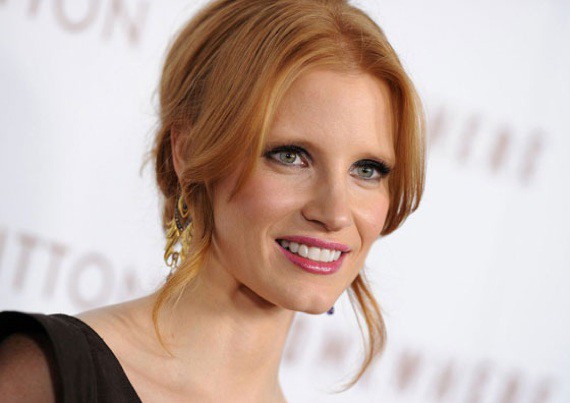It has not been a good couple of months for women on shortlists here in the UK. Back in December the nation presided over the BBC Sports Personality of the Year shortlist: 10 men and 0 women. Yesterday, BAFTA announced the shortlist for the Orange Wednesday’s Rising Star Award: 5 men and 0 women.
Both announcements whipped up an instant backlash on social media sites, with Tweeters asking ‘WHAT ABOUT THE WOMEN?!?” and other such rhetorical questions written in capital letters and with punctuation marks spiraling off into oblivion.
BAFTA were quick to respond by pointing out that they had included women on their longlist — Jessica Chastain, Felicity Jones and Jennifer Lawrence — but that it was Orange mobile phone customers who had voted to make the shortlist the testosterone-fest that it is (I paraphrase), thus excusing themselves from the whole debacle.
As with the BBC Sports Personality shortlist, what really rubbed salt into the wound was that with such strong female contenders, some of them really should have made the shortlist. Jessica Chastain is perhaps the most glaring oversight. From starring alongside Brad Pitt in Palme D’Or winner The Tree of Life, to appearing in popular adaptation The Help, this has been the year that Chastain really broke into the mainstream and has shown the industry and audiences that she is without doubt a rising star to be watched in years to come.
So, should it be the responsibility of award organisers, such as the BBC and BAFTA, to ensure some gender balance on their shortlists? No, I don’t think it should. These are awards that were set up to be voted for independently and without bias. But the fact that women are still so regularly absent begs a wider debate about the on-going cultural dominance of men, and the lack of acknowledgement for women’s achievements. For example, shamefully, here in England, our World Cup-winning female cricket team received no public celebration of their achievements when they returned home while the men’s rugby team, was paraded through central London atop a double-decker bus to streets lined with cheering crowds after their World Cup win. That rather sums it up for me.
If anything positive can be taken from the BBC and BAFTA women-less shortlists — and it does feel slightly like clutching at straws here — it is that they were noticed. As soon as the announcements were made, journalists and the public alike wrinkled their collective brow in a quizzical fashion and asked the question “where are the women?”. As long as we keep asking the question, in larger numbers and with louder voices, sooner or later we must find the answer.
_______________________________________________________
Rebecca Brand is Head of Communications for Women in Film and Television UK and editor of the WFTV UK website






